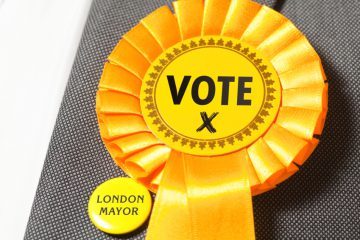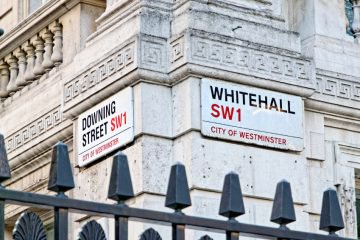London Property Sales at Lowest Ever Pre-Election Level
London property sales are at the lowest ever levels recorded pre-election, according to analysis of the latest Land Registry data by Portico London estate agent.

London Property Sales at Lowest Ever Pre-Election Level
The data shows that there were just 55 property sales in the whole of the Westminster borough in February this year – the lowest ever number recorded by Land Registry, and 60% lower than in February 2009, immediately after the market crash.
Portico’s study shows that there is a clear correlation between general elections and property sales; hence, the agent is predicting a further decline in sales volumes until the snap General Election on Thursday 8th June.
Historically, low levels of property sales in central London have pushed people further out of the capital, but Portico’s data shows that falling volumes are now a problem across the whole of London.
There were just 105 property sales in the south London Borough of Wandsworth this February, compared with 370 last year – a huge 72% decline year-on-year.
Likewise, the Land Registry figures show that there were just 82 property sales in the east London Borough of Redbridge in February, compared with 260 the year before – a 68% decrease on an annual basis.
According to Portico’s research, the market will likely experience a spike of activity post-election, when certainty in the market is restored. After the last general election in 2015, Wandsworth and Westminster experienced a 28% increase in property sales in the three months post-election, and Redbridge saw an even greater 34% jump in activity.
The Managing Director of Portico, Robert Nichols, comments: “Currently, transaction volumes, or the number of homes being bought and sold in the capital, are at an all-time low. The drop in transactions is in part explained by a big jump in sales in the run-up to April last year, when the change to Stamp Duty taxes came into effect, followed by an immediate fall. Since then, volumes have dropped to historic lows, and Theresa May’s decision for a snap General Election will further subdue the market.
“We are expecting to see some improvement in volume post-election, but, at best, we expect volume to track at -5% year-on-year to summer 2016, when volumes failed to recover after the Stamp Duty changes.”
However, he adds: “We cannot say for certain what impact a boost in market activity will have on property prices, but, historically, there has always been a slight increase. If we look at the last election, house prices rose by 2.4% in Wandsworth in the three months following the vote, 4.6% in Redbridge and 1.7% in Westminster. Similarly, in the election before that in 2010, property prices rose by 1.8% in Wandsworth, 2.5% in Redbridge and a staggering 19% in Westminster in the three months after the election.”








